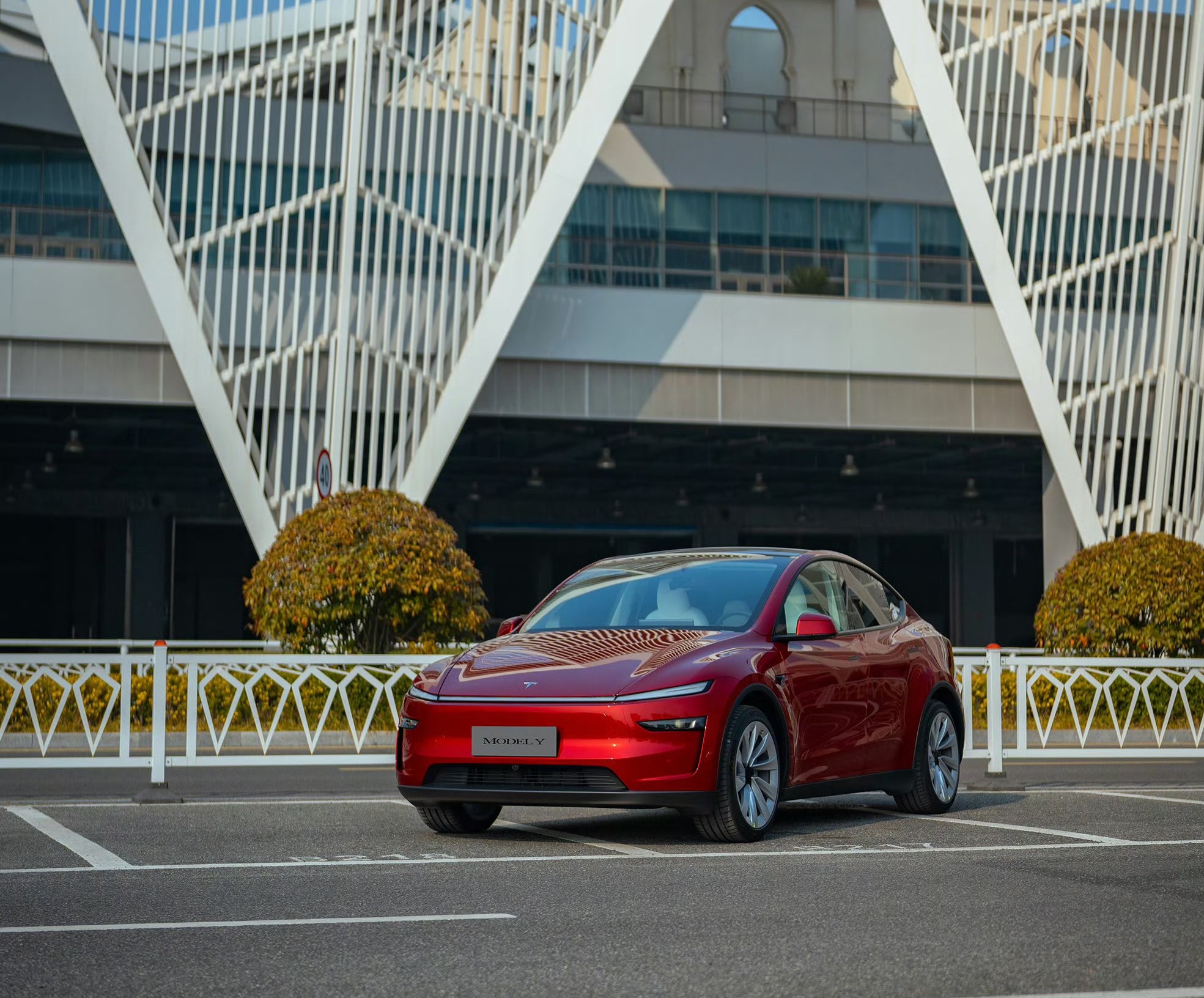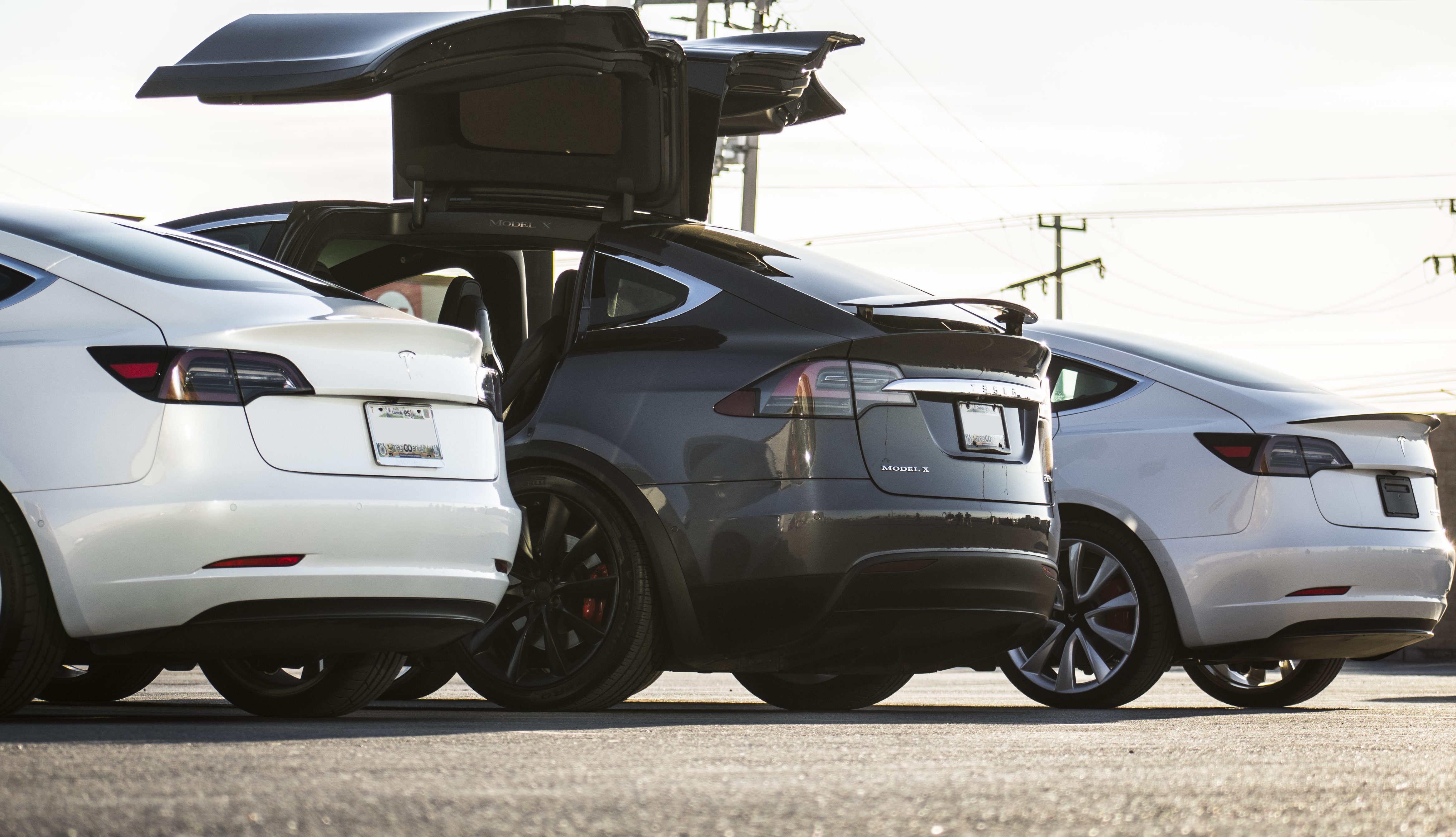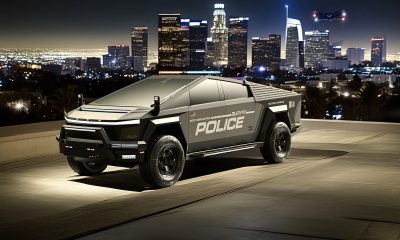It’s obvious by now that Tesla is having a major impact on the automotive world, and this seems to be most felt in places where emissions regulations are tightening up in a big way. The state of California, for example, has a regulatory scheme that forces some major car makers into buying greenhouse gas (GHG) credits, and Europe’s impending CO2 restrictions are going to mean creative hoop jumping if manufacturers hope to avoid their fines.
Despite this fine-print qualifying, Tesla isn’t exactly sitting on the bleachers gloating in these companies’ attempts at compliance. Rather, they’re shepherding the changes and gaining a multifaceted advantage while they do so.
In fact, you might say Tesla is the benevolent harbinger of doom for transportation powered by fossil fuels.
In April this year, details of a deal between Fiat Chrysler (FCA) and Tesla were revealed where the companies’ vehicle fleets would be pooled together to bring down FCA’s emissions average in the EU. By doing so, FCA avoided CO2 fines for 2020, according to its CEO Mike Manley in a Q2 2019 results conference call. The arrangement is expected to continue until 2022, and Tesla’s payout from the bargain is estimated to be around $500 million.
Fiat Chrysler is also leaning heavily on Tesla in California where the Italian automaker was recently found to be purchasing GHG credits from the Elon-Musk-led venture. FCA isn’t the only one, though. General Motors (GM) was also found to be buying credits from Tesla, despite having its own battery electric and plug-in hybrid electric vehicles on the market for years. The move could be to guard against regulatory uncertainties in the future, but the message is still clear: GM has a ways to go in revamping its fleet for an electrified future, and Tesla is offering a hand-up in the process.
The hand-up is quite lucrative, of course. Tesla reported $216 million in revenue from the sale of regulatory credits in Q1 2019 alone, and CFO Zachary Kirkhorn expects credit sales to be even more significant in the future.
Tesla isn’t just helping with “Get Out of Jail (for a price)” cards, either. Their patents have operated under an open source philosophy since 2014. Some things are not shared in order to maintain a business edge – namely their Full Self-Driving tech; however, altogether Tesla is pointing the way towards a zero emissions automotive world, and they’re offering to help others in the industry get there, too. Yes, cars powered by fossil fuels are probably doomed, and Tesla’s success is basically ushering in that apocalypse. But they’re being kinder and gentler about it than they have to be.
The reason I classify Tesla’s credit dealings as benevolent rather than, say, opportunist, is because of the company’s mission from the start. Followers of Elon Musk are well versed (or somewhat versed) on his “Master Plans” that use electric cars to drive energy sustainability. In the end, the transition that FCA and GM are hiccuping their way through was the intention all along. It’s just ironic luck (or hard work, really) that Tesla can be there to guide them and assist them across the bridge. Or through the gates. Or…well, pick your metaphor. Could Tesla be hospice for FCA?
Okay, I’ll stop.
News
Tesla Model 3 ranks as the safest new car in Europe for 2025, per Euro NCAP tests
Despite being on the market longer than many of its rivals, the Tesla Model 3 continues to set the bar for vehicle safety.

The Tesla Model 3 has been named the safest new car on sale in 2025, according to the latest results from the Euro NCAP. Among 20 newly tested vehicles, the Model 3 emerged at the top of the list, scoring an impressive 359 out of 400 possible points across all major safety categories.
Tesla Model 3’s safety systems
Despite being on the market longer than many of its rivals, the Tesla Model 3 continues to set the bar for vehicle safety. Under Euro NCAP’s stricter 2025 testing protocols, the electric sedan earned 90% for adult occupant protection, 93% for child occupant protection, 89% for pedestrian protection, and 87% for its Safety Assist systems.
The updated Model 3 received particular praise for its advanced driver assistance features, including Tesla’s autonomous emergency braking (AEB) system, which performed well across various test scenarios. Its Intelligent Speed Assistance and child presence detection system were cited as noteworthy features as well, as per a WhatCar report.
Other notable safety features include the Model 3’s pedestrian-friendly pop-up hood and robust crash protection for both front and side collisions. Euro NCAP also highlighted the Model 3’s ability to detect vulnerable road users during complex maneuvers, such as turning across oncoming traffic.
Euro NCAP’s Autopilot caution
While the Model 3’s safety scores were impressive across the board, Euro NCAP did raise concerns about driver expectations of Tesla’s Autopilot system. The organization warned that some owners may overestimate the system’s capabilities, potentially leading to misuse or inattention behind the wheel. Even so, the Model 3 remained the highest-scoring vehicle tested under Euro NCAP’s updated criteria this year.
The Euro NCAP’s concerns are also quite interesting because Tesla’s Full Self-Driving (FSD) Supervised, which is arguably the company’s most robust safety suite, is not allowed for public rollout in Europe yet. FSD Supervised would allow the Model 3 to navigate inner city streets with only minimal human supervision.
Other top scorers included the Volkswagen ID.7, Polestar 3, and Geely EX5, but none matched the Model 3’s total score or consistency across categories. A total of 14 out of 20 newly tested cars earned five stars, while several models, including the Kia EV3, MG ZS, and Renault 5, fell short of the top rating.
News
Tesla upgrades Model 3 and Model Y in China, hikes price for long-range sedan
Tesla’s long-range Model 3 now comes with a higher CLTC-rated range of 753 km (468 miles).

Tesla has rolled out a series of quiet upgrades to its Model 3 and Model Y in China, enhancing range and performance for long-range variants. The updates come with a price hike for the Model 3 Long Range All-Wheel Drive, which now costs RMB 285,500 (about $39,300), up RMB 10,000 ($1,400) from the previous price.
Model 3 gets acceleration boost, extended range
Tesla’s long-range Model 3 now comes with a higher CLTC-rated range of 753 km (468 miles), up from 713 km (443 miles), and a faster 0–100 km/h acceleration time of 3.8 seconds, down from 4.4 seconds. These changes suggest that Tesla has bundled the previously optional Acceleration Boost for the Model 3, once priced at RMB 14,100 ($1,968), as a standard feature.
Delivery wait times for the long-range Model 3 have also been shortened, from 3–5 weeks to just 1–3 weeks, as per CNEV Post. No changes were made to the entry-level RWD or Performance versions, which retain their RMB 235,500 and RMB 339,500 price points, respectively. Wait times for those trims also remain at 1–3 weeks and 8–10 weeks.
Model Y range increases, pricing holds steady
The Model Y Long Range has also seen its CLTC-rated range increase from 719 km (447 miles) to 750 km (466 miles), though its price remains unchanged at RMB 313,500 ($43,759). The model maintains a 0–100 km/h time of 4.3 seconds.
Tesla also updated delivery times for the Model Y lineup. The Long Range variant now shows a wait time of 1–3 weeks, an improvement from the previous 3–5 weeks. The entry-level RWD version maintained its starting price of RMB 263,500, though its delivery window is now shorter at 2–4 weeks.
Tesla continues to offer several purchase incentives in China, including an RMB 8,000 discount for select paint options, an RMB 8,000 insurance subsidy, and five years of interest-free financing for eligible variants.
News
Tesla trails Volkswagen in Q1 EV sales, Model Y still on top

Volkswagen surpassed Tesla in Q1 2025 electric vehicle (EV) sales in Europe.
The German automaker sold 65,679 battery EVs compared to Tesla’s 53,237 in the first three months of the year, per JATO Dynamics data. Volkswagen’s registrations soared 157% year-over-year (yoy), while Tesla saw a 38% decline in the same period, the steepest among the top 30 brands. The German automaker’s strong performance highlights a growing competitive landscape in the EV market.
Despite losing the overall lead, Tesla’s Model Y and Model 3 remain the top two in Europe’s battery EV registrations. Volkswagen’s ID.4 ranked third in EU registrations, trailing the Model 3 by 2,000 units.
Model Y registrations dropped 43% in March, but the Model 3 increased 1% in the first quarter. The decline in Model Y registrations could be linked to Tesla’s upgraded Model Y, which debuted at the beginning of the year. In the first quarter, Tesla retooled and upgraded its factories worldwide to produce the new Model Y.
“As the brand continues to deal with a host of PR issues in addition to the changeover of the Model Y, Tesla is now relying on the Model 3 to offset its losses. Despite the controversy surrounding the brand’s CEO and the limited availability of the new Model Y, Tesla continues to perform well,” said Felipe Munoz, a global analyst at JATO Dynamics.
Tesla addressed its Q1 challenges during its recent earnings calls, with CEO Elon Musk attributing the dip to seasonal and strategic factors.
“Now, Q1, [the] first quarters of a year, are usually pretty tricky. Because it’s usually the worst quarter of the year because people don’t want to go buy a car in the middle of winter during the blizzard. So we picked Q1 as a good quarter to do a cutover to the new version of the Model Y and we changed the production of the world’s best-selling cars with — remember, the Model Y is the best-selling car of any kind on earth with a 1.1 billion unit per year output of a single model,” Musk stated.
Volkswagen’s surge reflects its continued focus on and dedication to EVs. While Tesla’s Model Y remains the global best-seller, Volkswagen’s momentum signals intensifying competition. As both companies navigate market dynamics, Tesla’s focus on its Robotaxi network and upcoming launches will be critical to regaining its edge.
-

 Elon Musk2 weeks ago
Elon Musk2 weeks agoTesla investors will be shocked by Jim Cramer’s latest assessment
-

 Elon Musk2 days ago
Elon Musk2 days agoxAI launches Grok 4 with new $300/month SuperGrok Heavy subscription
-

 Elon Musk5 days ago
Elon Musk5 days agoElon Musk confirms Grok 4 launch on July 9 with livestream event
-

 News1 week ago
News1 week agoTesla Model 3 ranks as the safest new car in Europe for 2025, per Euro NCAP tests
-

 Elon Musk1 week ago
Elon Musk1 week agoxAI’s Memphis data center receives air permit despite community criticism
-

 News2 weeks ago
News2 weeks agoXiaomi CEO congratulates Tesla on first FSD delivery: “We have to continue learning!”
-

 News2 weeks ago
News2 weeks agoTesla sees explosive sales growth in UK, Spain, and Netherlands in June
-

 Elon Musk2 weeks ago
Elon Musk2 weeks agoTesla scrambles after Musk sidekick exit, CEO takes over sales


















